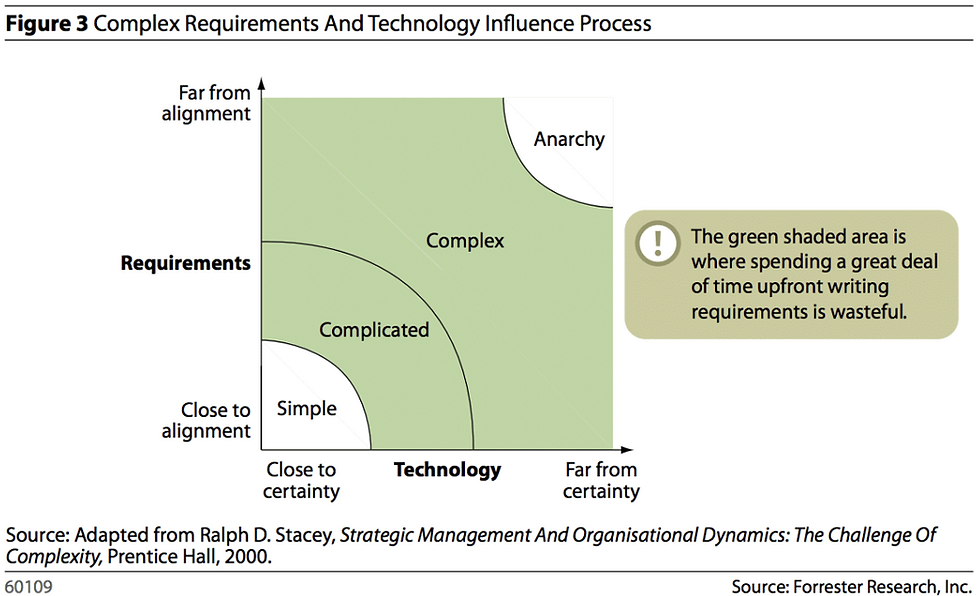Future-Proof Your Projects: 7 Game-Changing Trends in Project Management for 2025
- Violet Swierkot
- Jan 5, 2025
- 3 min read

As 2025 draws closer, the project management landscape continues to evolve, shaped by technological advancements, changing workplace dynamics, and rising societal expectations. From the increasing importance of soft skills to the growing need for cyber resilience, project professionals must adapt to a variety of trends reshaping the industry. Below is a summary of key areas expected to drive change in the coming year, with insights from Mike Boutel, Head of Training at PM-Partners.
1. The Growing Importance of Soft Skills
In a hybrid and technology-driven environment, soft skills—or "power skills"—are more essential than ever. Project managers need to excel in interpersonal communication, leadership, adaptability, and emotional intelligence to effectively lead diverse, geographically dispersed teams. These skills foster collaboration, resolve conflicts, and strengthen team cohesion, delivering tangible improvements in project outcomes and employee satisfaction.
As technology takes on more repetitive tasks, project managers are shifting their focus to strategic decision-making and people-oriented challenges. Emotional intelligence, in particular, is critical for building trust and maintaining team unity in both virtual and in-person settings.
2. Cyber Resilience in Project Management
As cyber threats become increasingly sophisticated, project managers must ensure cybersecurity measures are embedded within their delivery frameworks. Building cyber resilience involves not only technical defences but also proactive risk mitigation strategies.
In 2025, organisations will prioritise cybersecurity training for project managers to safeguard sensitive data, maintain business continuity, and protect their reputations. Cyber resilience will become a core competency for project professionals.
3. AI and Generative AI in Workflows
Artificial intelligence (AI) and generative AI are transforming project workflows. These tools automate routine tasks and support strategic initiatives such as risk simulation, stakeholder communication, and detailed project planning.
While these technologies present significant opportunities for innovation and productivity improvement, their success hinges on education and training. Project managers will need to develop the skills to effectively leverage AI tools, ensuring they integrate seamlessly into workflows.
4. Agile Maturity Beyond IT
Agile methodologies are no longer confined to IT departments but are becoming an integral part of organisational culture across industries such as healthcare, construction, and public services. The hybridisation of Agile with traditional models allows for tailored approaches to diverse projects.
Project managers will play a pivotal role in fostering an Agile mindset, ensuring that teams across all sectors embrace flexibility and responsiveness as part of their project delivery strategies.
5. Sustainability as a Core Principle
Sustainability has shifted from being a "nice-to-have" to a strategic priority. In 2025, project managers will embed environmental, social, and governance (ESG) goals into their methodologies. This involves reducing waste, optimising resources, and delivering outcomes aligned with long-term environmental and social benefits.
Aligning with global sustainability agendas, such as the UN's 2030 goals, will become standard practice for organisations aiming to meet the growing demand for sustainable project delivery.
6. Diversity and Inclusion in Project Teams
Diversity and inclusion (D&I) are becoming critical priorities for organisations, recognised for their role in fostering innovation and improving problem-solving. Project managers are tasked with creating inclusive team cultures, addressing biases, and ensuring that all team members feel valued.
In 2025, D&I initiatives will play a key role in driving collaboration and improving project outcomes by unlocking the full potential of diverse teams.
7. Hybrid Project Management Models
The hybrid approach to project management—blending Agile and Waterfall methodologies—will continue to gain traction in 2025. This approach allows project managers to adapt to the unique requirements of each project, combining the structure of traditional methods with the flexibility of Agile.
Balancing clear governance structures with the freedom to innovate will be essential for leading large-scale, multidisciplinary projects. PMOs must be proficient in managing this balance to achieve optimal results.
Conclusion
As project management becomes more strategic, people-focused, and responsive to global trends, professionals have a unique opportunity to drive innovation and improve delivery outcomes. By embracing these trends, project managers can not only meet the challenges of 2025 but also shape the future of their organisations.
#AgileLeadership #CyberResilience #SustainabilityGoals #DiversityAndInclusion #HybridWorkflows #SoftSkillsMatter #StrategicManagement #DigitalTransformation #InnovationLeadership #PMTrends2025 #WorkplaceInnovation #LeadershipSkills
References: Project management trends 2025 | PM-Partners, ProjectManagement.com - What I see for Project Managers in 2025, What’s The Future of Project Management in 2025 and beyond?



Comments